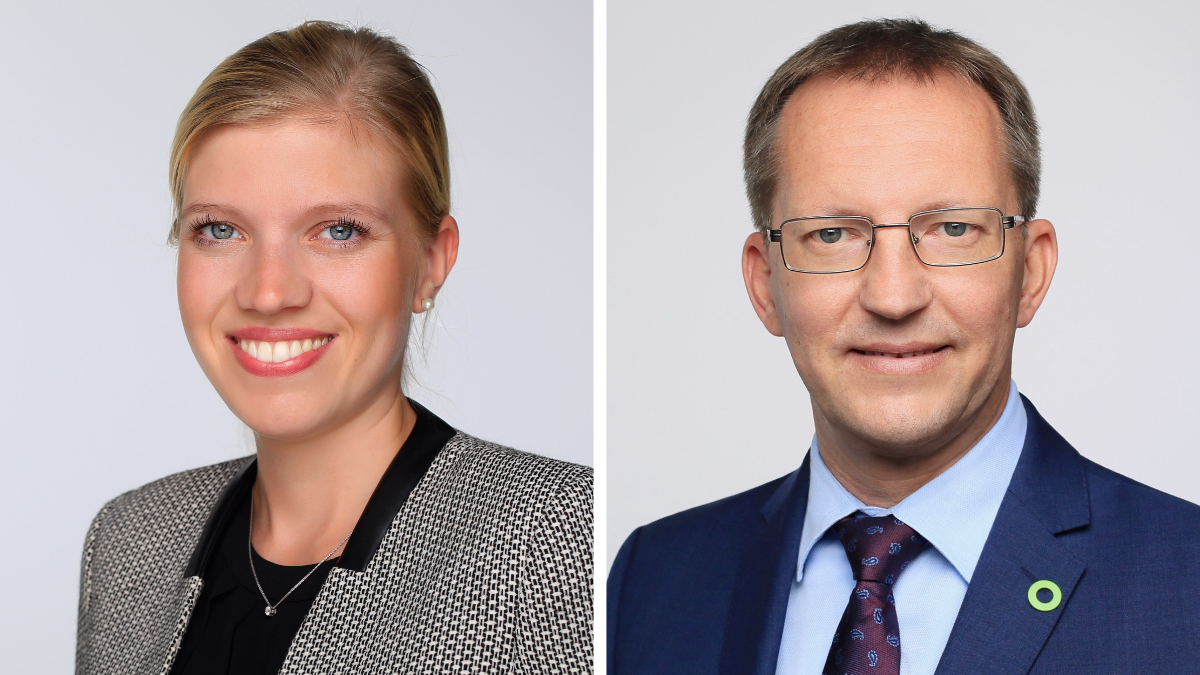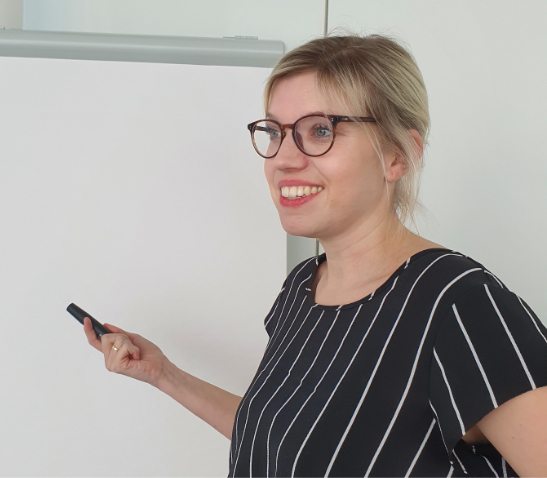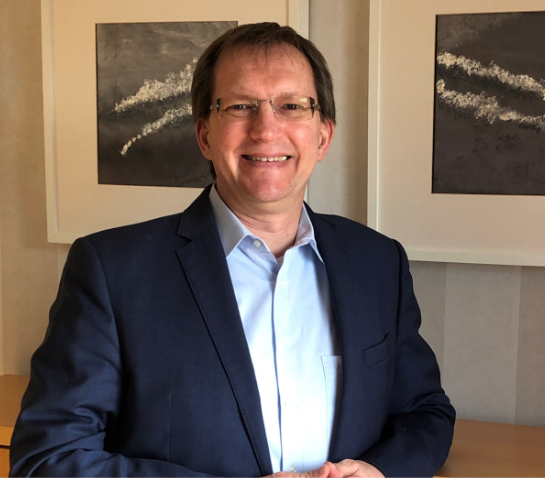Eva Meyer & Frank Sibert
BNP Paribas S.A. Germany
Sustainable Finance – what does that mean to you?
Eva Meyer, Head of Company Engagement BNP Paribas Group, Germany: For me, sustainable finance has many facets. It is about promoting and supporting companies that contribute to society and climate protection. We want to support other companies that do not yet meet these criteria in their transformation process.
In January, I took over the management of the Company Engagement division, which was newly created in Germany. This includes the Sustainable Business & Advisory department, which is led by Frank Sibert, the team that takes care of our own CSR activities and the BNP Paribas Germany Foundation, which is involved in many projects for social issues. These topics, which are strategically relevant for BNP Paribas, are also represented in the Group Management Board Germany in order to anchor them even more deeply in the company.
Our goal is to support, advise, help and be a strategic partner for companies that already have a sustainable business model or companies that are on their way to that. From our point of view, this is not only the right approach from an ethical point of view, but also from an economic point of view. We are convinced that only such companies will have lasting success in the future.

What do you think is the key to the successful development of the sustainable finance movement?
Meyer: Exchange, permanent learning and cooperation. We have to get the right people together around the table. For us as a bank, these are our own business areas and our different customer groups. In addition, other banks, NGOs and many other stakeholders, similar to what is done in the cluster.
Further development also means thinking outside the box and promoting innovations. This can only be managed if different stakeholders are brought together. Our industry plays a key role here.
Sibert: The topic of sustainability is now generally accepted and is used more and more frequently as a criterion for evaluating companies and products. However, there is still a lack of standardized assessments of ESG risk ratings or products.
For the financial sector to serve as a driver of the transformation, e.g. through capital allocation, we need meaningful information for all market players and instruments that guarantee a reliable assessment and the ongoing comparison of what has already been achieved with the goals. In addition to future-oriented and integrated reporting, a lot of energy should flow into the systematic build-up of knowledge at all levels of society, including the supervisory authorities and committees. Only in this way can we lay the foundations for an institutional perpetuation of the development of sustainable finance.
What role does BNP Paribas play here?
Meyer: BNP Paribas already occupies a leading position in sustainability issues and is one of the greenest banks in Europe. The group intends to expand this position and systematically anchor the topic in its network. We are represented in Germany at 16 locations with around 6,000 employees, worldwide we are present in over 71 countries with around 199,000 employees and therefore rely heavily on our European and global network.
The BNP Paribas Group is involved in a variety of initiatives. In Germany, we are involved in many pioneering bodies, such as the Green Finance Cluster, the Hydrogen Council and the Sustainable Finance Advisory Board of the Federal Government, to actively help shape these issues. We see this as our task and also as our responsibility. We want to be a pioneer in change. In keeping with our slogan “The bank for a changing world”, we want to support our customers with strategic, reliable and innovative partners. For this we have an advisory team that is closely connected with all business units in order to create integrated solutions.
“Our aim is for commitment and sustainability to anchor more firmly in our company and to become a “New Normal” and “New Way of Banking”. The criteria should be included in every consideration, regardless of whether it is about business or your own processes and policies.”


“Our aim is for commitment and sustainability to anchor more firmly in our company and to become a “New Normal” and “New Way of Banking”. The criteria should be included in every consideration, regardless of whether it is about business or your own processes and policies.”

“Going forward, we will work together with the private sector to create a framework with which transparency and comparability can be established in corporate reporting. We want to make our contribution to sustainable investment decisions and holistic risk management.”
What is your personal goal?
Meyer: Our aim is for commitment and sustainability to anchor more firmly in our company and to become a “New Normal” and “New Way of Banking”. The criteria should be included in every consideration, regardless of whether it is about business or your own processes and policies.
Sibert: BNP Paribas has been heavily involved in the work of the cluster over the past two years. In this way we were able to set the tone in the discussion about the application of reporting obligations, e.g. according to TCFD. Going forward, we will work together with the private sector to create a framework with which transparency and comparability can be established in corporate reporting. We want to make our contribution to sustainable investment decisions and holistic risk management.
„In order to stop climate change – the effects of which have long since been noticeable – enormous investments are needed. This is why we are embracing the idea of private capital also being invested according to the principles of sustainability. The Cluster aims at further promoting this movement.“
Hessian Minister of Economy, Tarek Al-Wazir


